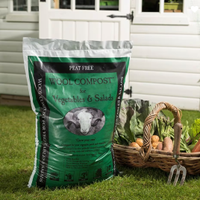What is peat compost? And what are the best peat-free compost alternatives?
Gardening experts clarify the difference between peat and peat-free compost, and why you should care
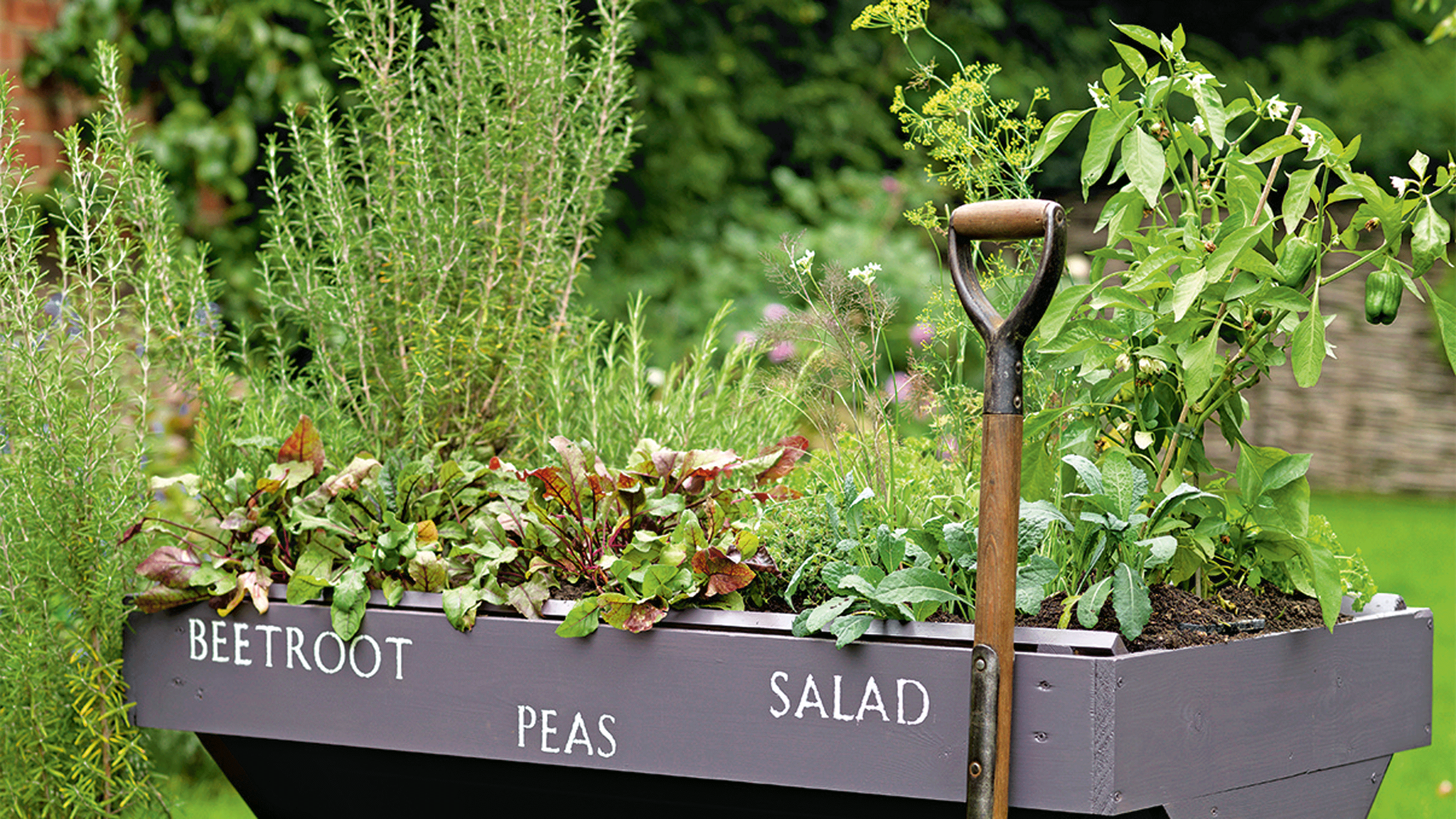

There's been a lot of talk recently about peat compost, but for many of us, we're still wondering what it is and why we should care. Taking the time to understand what is peat compost will help you use the right compost for your garden so that your flowers and plants can gloriously bloom.
Having a basic foundation of knowledge when it comes to compost is important if you want your garden ideas to thrive. Whether you're learning how to make compost so you don't have to rely on store-bought, or you've been purchasing yours from your local garden centre for several years, knowing what is peat compost - and why it's such a hot topic lately - will serve you and your plants well.
'From the end of next year, gardeners in England will no longer be able to get any peat-based compost (it will still be in use in Europe),' explains Victoria Wright, Technical Manager, Melcourt. 'They are being banned due to peat extraction causing alleged damage to the environment, mainly releasing long-stored CO₂.'
So, now is the time to understand what is peat compost, and what the prospective ban means for our gardens.
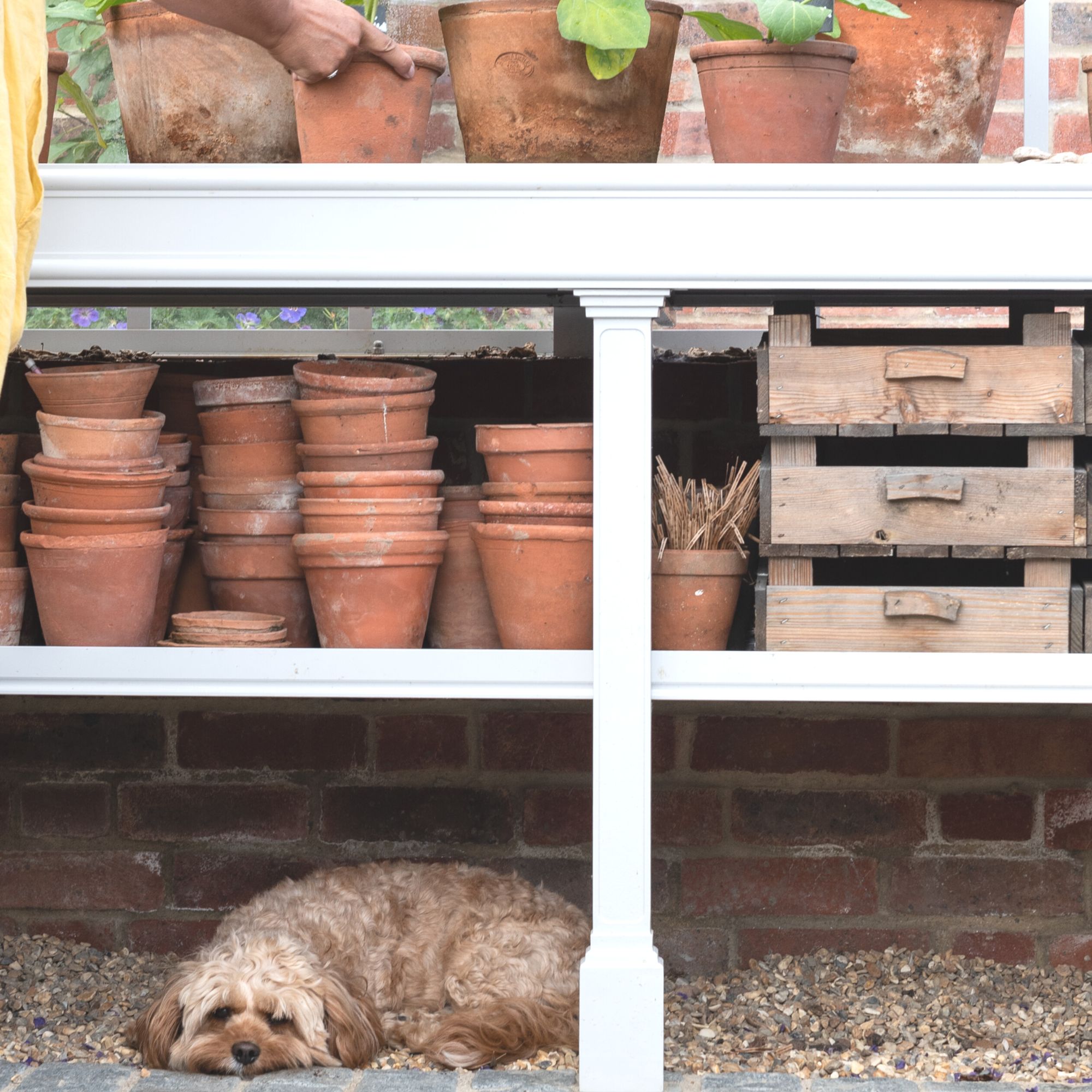
What is peat compost?
Gardeners across Britain have been using peat-based compost since the 1960s, so many are concerned about having to switch to peat-free alternatives. But horticultural experts and gardening amateurs are divided, with some advocating the benefits of peat-free compost that go beyond the environmental impact.
We've asked gardening experts to explain what is peat compost, and what does the ban mean for those of us who are currently using it. Here's everything you need to know.
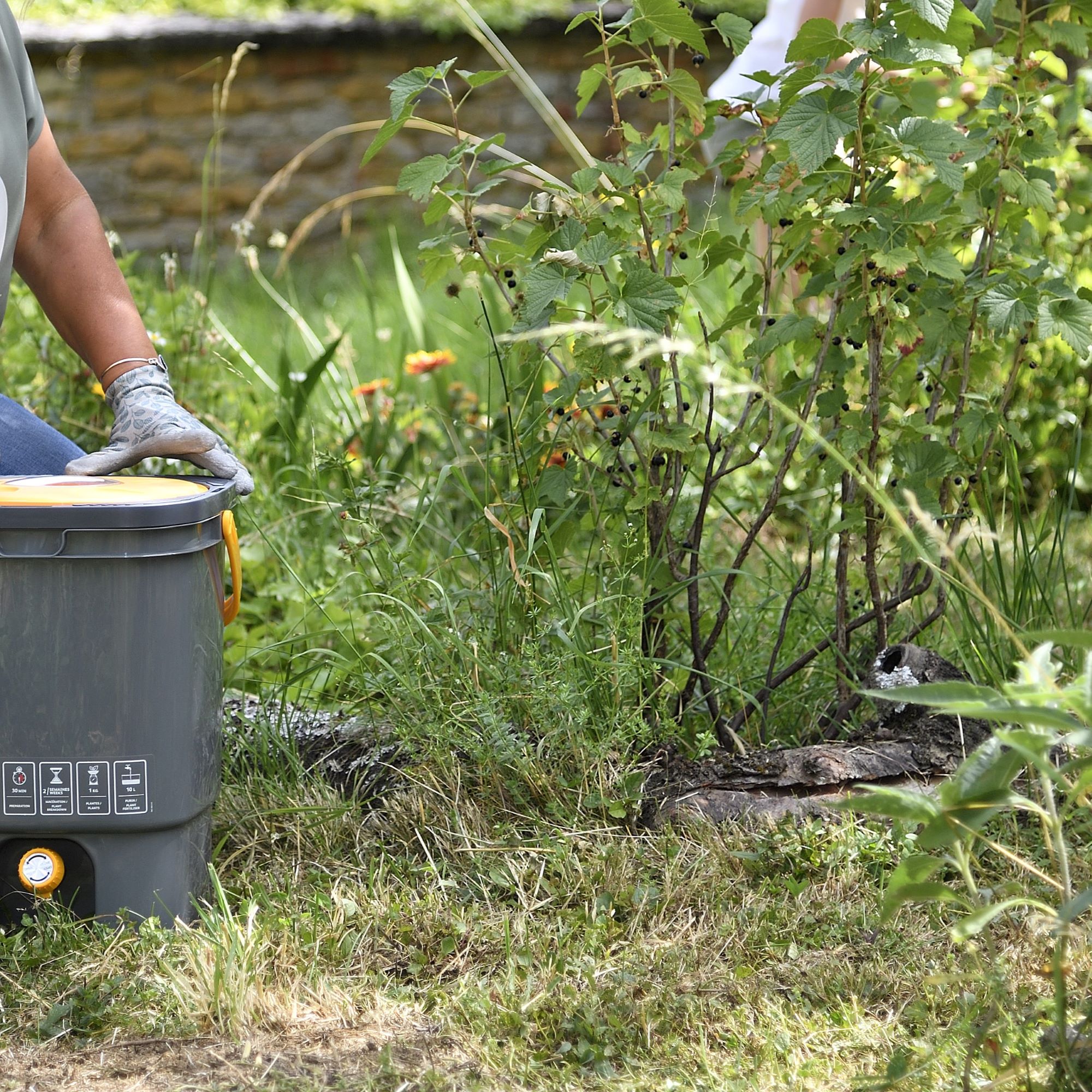

Garry Coward-Williams is the editor of Amateur Gardening magazine, the oldest horticultural publication in the world. He has written extensively on the challenges enthusiasts face with the change to peat free compost, both in Amateur Gardening and in national newspapers.

Steve Bradley MA MHort (RHS) has written over 40 gardening books, including Propagation Basics, The Pruner’s Bible, The Ground Force Workbook and What’s Wrong With My Plant? He is resident expert on BBC Radio Kent, Sussex and Surrey, and he has built medal-winning gardens at both Chelsea and Hampton Court Palace.
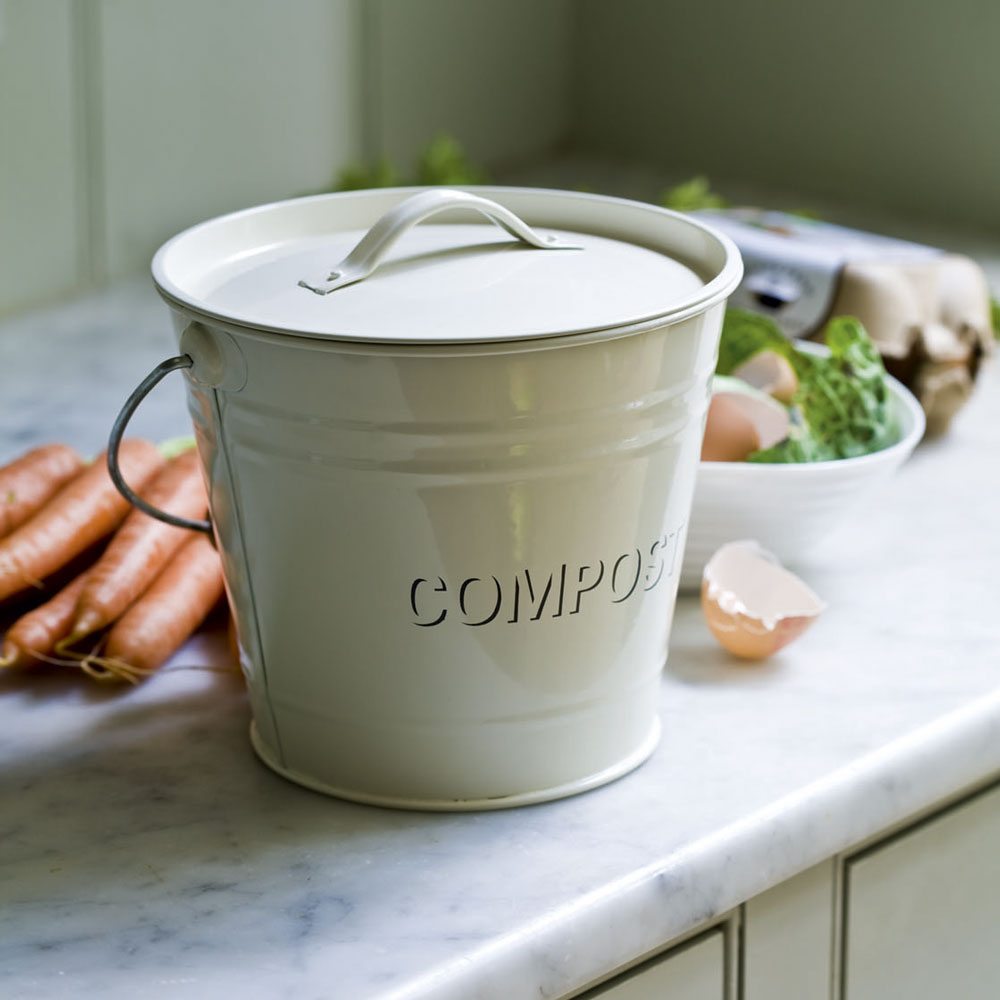
Peat is an accumulation of partially decayed vegetation or organic matter. It's essentially the remains of ancient plants and animals that have only partially decomposed, over the course of thousands of years. It is used in compost because it provides a fertile growing medium for plants, and it's also ideal for growing the best vegetables in pots.
Concerns around the environmental damage caused by peat extraction has led to a ban of peat compost in the UK, effective from the end of next year. Environmental and wildlife groups have flagged the CO₂ emissions that are released in the peat extraction process, as well as the loss of biodiversity that occurs in the peat bogs. There's also worries around an increased risk of wildfires because the extraction of peat leaves the land dry.
But, some experts have flagged the issues surrounding the argument that peat extraction is intrinsically damaging to the environment. A lot of peat extraction is carried out on landscapes that have already been been drained and worked by humans over centuries for agriculture and habitation.
'The alternative view might be that the lowest CO₂-emitting activity that could be carried out on such degraded lowland bogs is actually peat extraction — lower than forestry, agriculture, grazing, urban development or even leaving the land unused,' says Steve Bradley, Horticulture Expert.
Benefits of peat compost
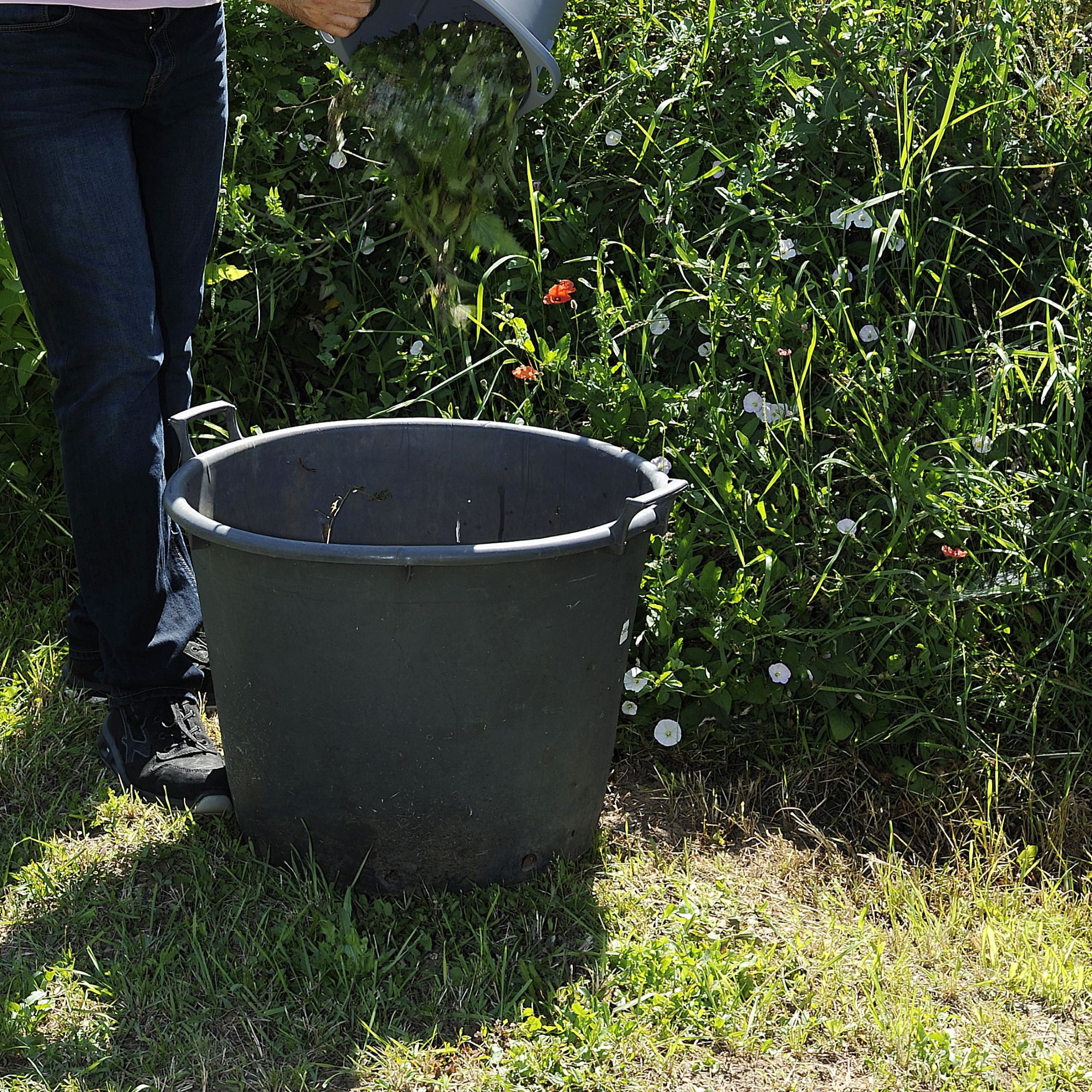
Aside from the argument that peat extraction isn't inherently bad, many experts also advocate for the benefits of using peat compost over peat-free alternatives.
'Peat is undeniably the best medium for growing plants,' says Garry Coward-Williams, Amateur Gardening Editor. 'It has the unique quality of being able to retain water and nutrients evenly from the top of the compost to the bottom, and this is what helps plants to thrive.'
So whether you're embarking on a specific gardening venture like growing wisteria in pots, or you're looking to help all the plants in your garden thrive, peat compost is going to be beneficial. Peat-free alternatives on the other hand have been highlighted by some experts as being more problematic.
'Peat free on the other hand doesn't have these qualities and generally suffers from ‘leaching’, meaning it doesn’t retain water and nutrients evenly. They tend to drain to the bottom of the compost making that area waterlogged, but the rest of the compost stays dry.'
Peat-free alternatives

When looking into what is peat compost, it's helpful to look at peat-free alternatives, which after 31st December 2024, will be the only available option for amateur gardeners.
Anything can be classified as peat-free compost as long as it doesn't contain peat. Stating the obvious, we know, but it's an important point to highlight, because it points to the fact that not all peat-free alternatives are created equally.
'Peat-free composts can be composed of one or several ingredients such as coir (by product of coconut production), bark (a by product of the timber industry), woodfibre, green compost, wool, loam, and anaerobic digestate (a by product of green electricity production),' explains Victoria Wright. 'There is no independent or British standard therefore many different formulations exist.'
With peat having been the most widely used form of compost for several decades, manufacturers have struggled to come up with an equally effective alternative in the first instance. But, there are still some great options on the market that will help your plants and garden to thrive this summer.
Benefits of peat-free compost
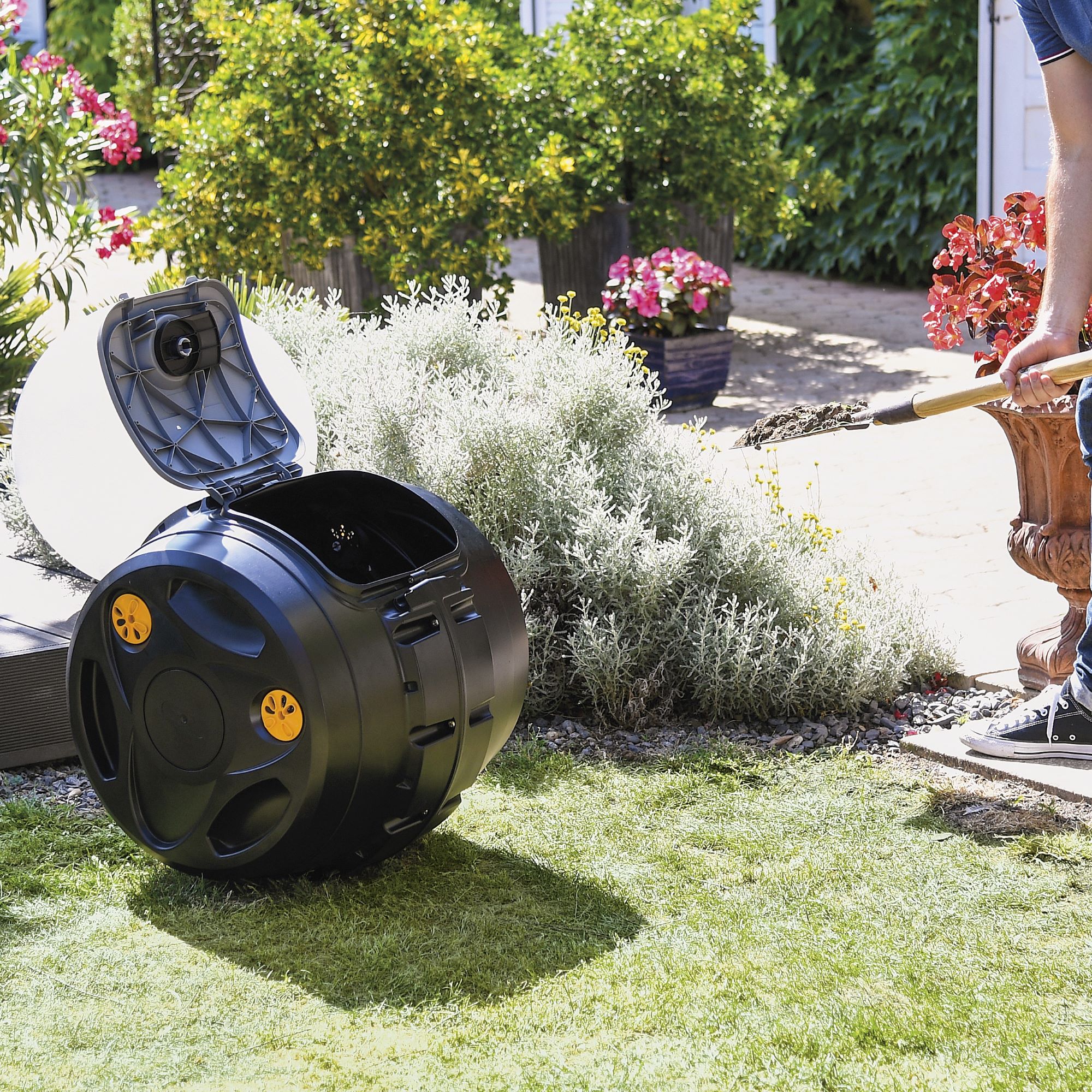
'The best advice with peat-free composts is to use a well-researched, tried, and tested brand,' Victoria says.
If you're using a good quality peat-free compost, it should be able to resist leaching and retain its water. Aside from the lower environmental risk with peat-free alternatives, there are other potential benefits which may be good for your plants.
'Once the best alternative materials have been found, there may be improved control of root diseases: peat-free compost mixes can provide more oxygen around the root system and are less able to become waterlogged,' says Steve Bradley. 'These open, free-draining composts often encourage a better root structure. The open nature of some composts can provide more oxygen, which can improve biological activity, such as mycorrhizal growth.'
So while peat compost has long since been championed as the elite composting form, the rise of good quality peat-free alternatives is definitely something to watch. As manufacturers become better equipped to work with new materials, and learn through a trial and error process, peat-free growing mediums should be able to do as good a job as peat.
'I would recommend Sylvagrow, which is bark-based and Dalefoot, which is wool-based,' says Garry Coward-Williams. 'They are not cheap, but I believe they are the best available that we have tried.'
Dalefoot compost for vegetables and salad | £21.98 at Waitrose Gardens
Dalefoot compost is a peat-free compost made from a blend of sustainable sheep’s wool and bracken sourced from the Lake District. It comes in a couple of varieties for different plants.
FAQs
What is peat compost good for?
The great thing about peat compost is its ability to retain water and nutrients evenly throughout. This means that plants and vegetables can better access the water and nutrients they need to thrive.
Peat compost has also been manufactured for gardeners since the 1960s, so there's a lot more industry regulation and it's more apparent what's going into the product. This is not currently the case with many peat-free alternatives.
'A wide range of materials for peat free have been trialled and continue to be tested, with varying degrees of success', says Steve Bradley. 'Many lack consistency, meaning the compost will vary from batch to batch throughout the season and from year to year.'
Peat compost is usually more assured compost than peat free alternatives, though as manufacturers continue to create compost with different materials, this may change. Beware of any peat free composts that do not state their ingredients on the bag.
What are the disadvantages of peat compost?
The main disadvantage of peat compost is the environmental impact of its manufacture. It's a non-renewable resource, and the process of extracting it can release CO₂.
The landscape from which peat is extracted is also significantly altered during the process. Horticultural experts have claimed that extracting peat can reduce the biodiversity of peat bogs by 50%. Aside from this, the land is left significantly drier than before, meaning there's an increased risk of wildfires.
Now you know the answer to what is peat compost, will you be trying some peat free alternatives to help the environment and prepare your plants for next year's ban?
Get the Ideal Home Newsletter
Sign up to our newsletter for style and decor inspiration, house makeovers, project advice and more.

Katie has been writing freelance since early 2022, specialising in all things homes and gardens, following achieving a Masters in Media and Journalism. She started out writing e-commerce content for several of Future’s interior titles, including Real Homes, Gardeningetc, Livingetc, and Homes and Gardens. Since then she’s been a regular contributor on Ideal Home’s digital team, covering news topics, how-to guides, and product reviews.
-
 Should your front door colour match your hallway? Interior experts reveal 3 reasons why it should (and 3 reasons it shouldn't)
Should your front door colour match your hallway? Interior experts reveal 3 reasons why it should (and 3 reasons it shouldn't)Are you team matching or contrasting?
By Ellis Cochrane
-
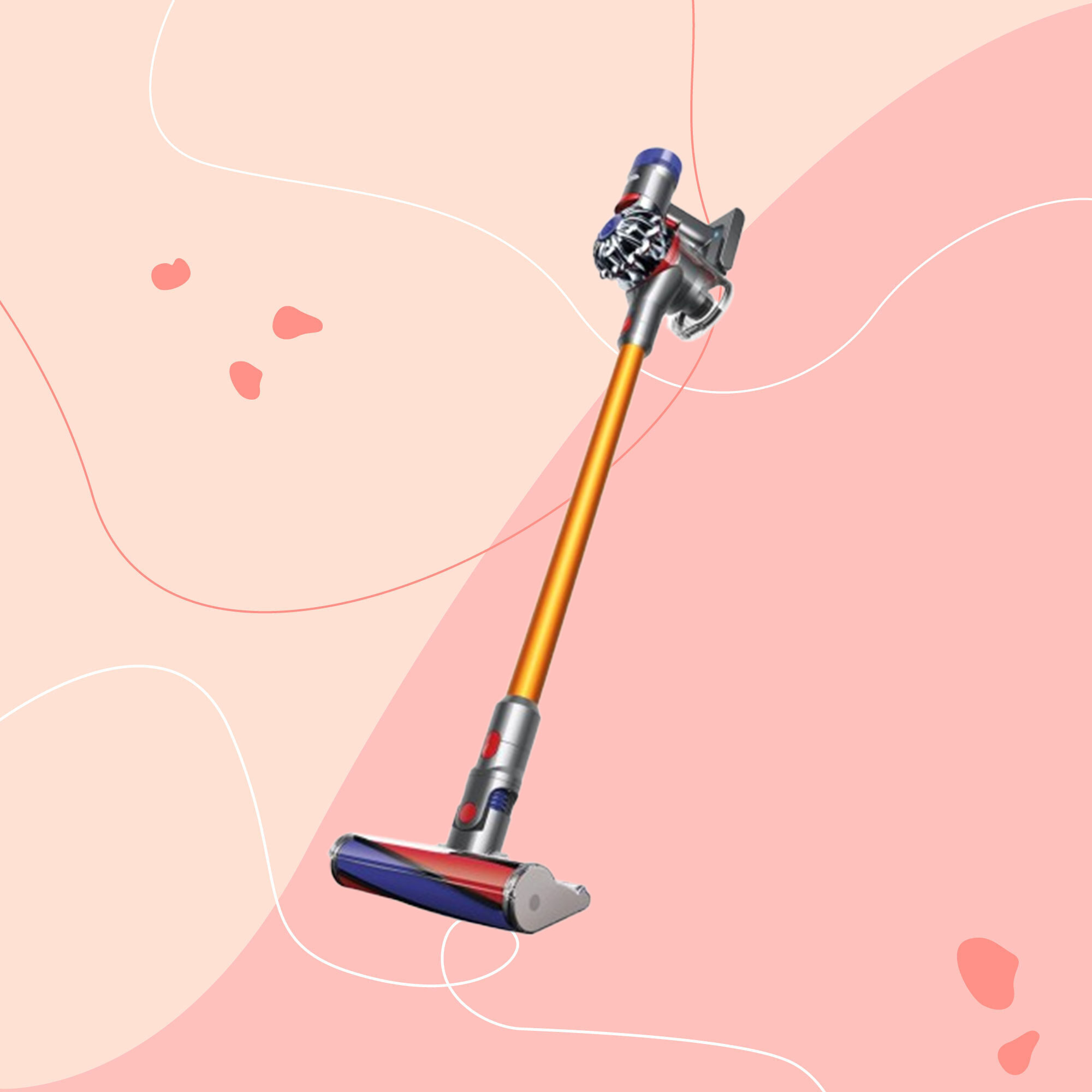 This £200 limited-time discount makes this Dyson vacuum cheaper than I’ve ever seen it - run don’t walk to Argos for this bargain
This £200 limited-time discount makes this Dyson vacuum cheaper than I’ve ever seen it - run don’t walk to Argos for this bargainIt's the most affordable Dyson on the market right now
By Lauren Bradbury
-
 Martin and Shirlie Kemp’s pastel flower beds has given their Victorian renovation a romantic look - how you can get the look
Martin and Shirlie Kemp’s pastel flower beds has given their Victorian renovation a romantic look - how you can get the lookTheir pastel garden is the cottage garden inspo you've been looking for
By Kezia Reynolds
